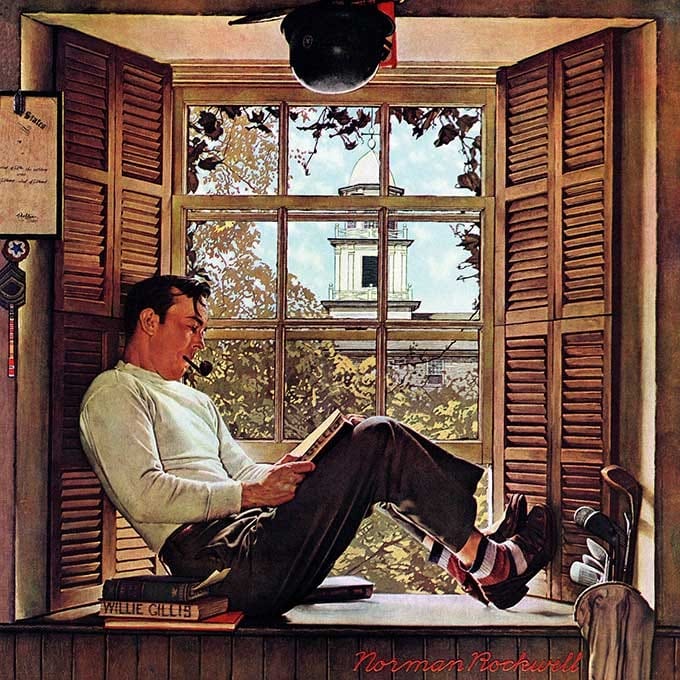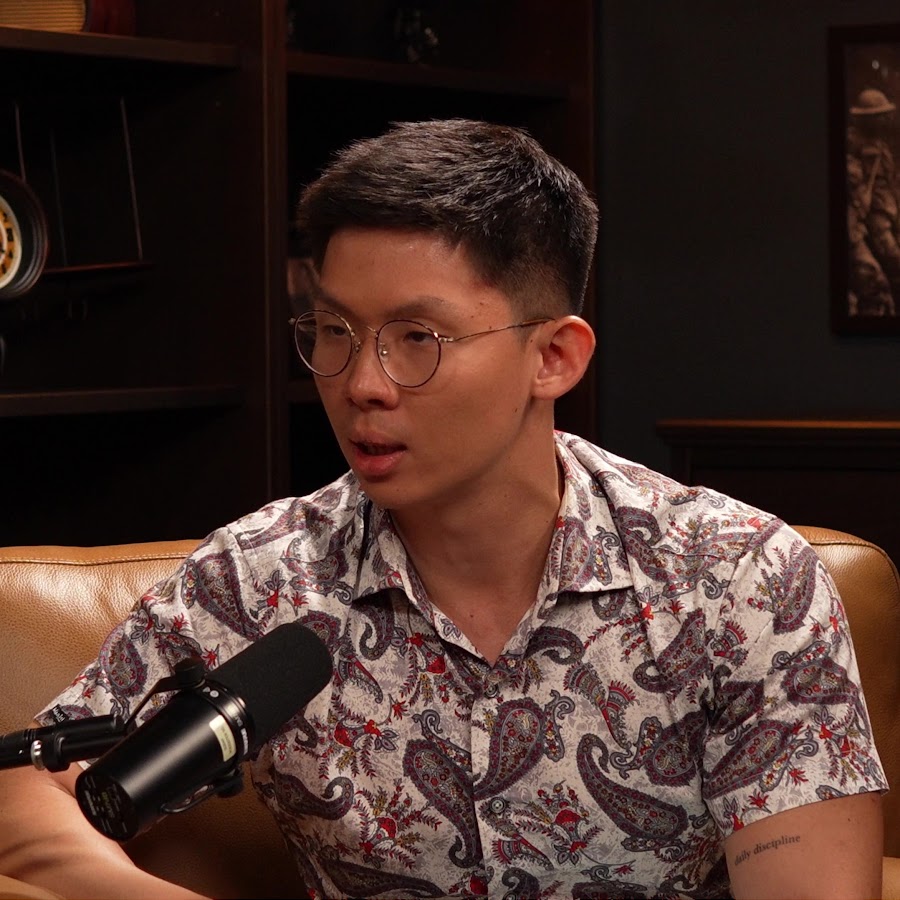Has Reading Died In Our Social Media Age?

I just read the OECD Survey of Adults Skills that dropped in December last year.
For some reason, it caught fire this past week.
My best guess is that everyone was too busy celebrating Christmas and our midway point to 2030 for this to just slip beneath our radar.
Until reality hit us in the face.
(After all, we, Singaporeans, the undisputed kings of test-takers, will not let it slide when we do badly on a test.)
What Does The Data Say?

The results showed two things:
- Singapore is converging to the OECD average in literacy and the upper third in numeracy. Given that millennials and Gen-Z Singaporeans had a far better public education experience than our parents, it’s no surprise we are becoming more proficient.
- As we age, our literacy proficiency is declining. Compared to the previous test, we saw a decline in literacy across all cohorts. The decline was most pronounced in lower-educated and more highly educated adults.
What I found personally shocking was how the decline becomes more pronounced as one ages. For a man entering his thirties, I am trying my best to stave off this fate.
Another reason this finding is shocking is that the world sees our 15-year-olds as prodigies. For one, our students emerged as top performers for reading in the OECD's Programme for International Student Assessment.
But, one can take some cold comfort from the fact that this decline with age is consistent across OECD countries and that, unlike most of our peers, we did not see a decline in overall literacy scores.
Research suggests that the amount of reading people engage in at work and at home is a strong indicator of a country's PIAAC literacy score.
It should be obvious that the stronger a country's reading culture, the more literate its population will be; thus, the country will get a higher literacy score.
This begs the question:
Do Singaporeans Read?
In 2017, Kishore Mahbubani wrote that Singaporeans ‘don’t read enough. And when they do read, their reading is narrowly focused.’
He argues that even when we read, we indulge in self-help books.
He contended that for a country as small, globalised, and exposed as Singapore, our destiny hinges on our collective ability to respond to external events.
Thus, self-help books will not actually be useful. He argued that we should take deeper and wider intellectual interest beyond our lives.

(If we were to look at the Straits Times Weekly Bestsellers today in 2025, I find it quite crazy that Atomic Habits continues to take the #1 spot.)
While I don’t think the list of our best-selling nonfiction books should be seen as a national wall of shame, we would greatly benefit from reading more books on history, science, geopolitics, and economics.
When we diversify our intellectual portfolio, we can better understand reality.
It is worth pausing here for a moment to share George Yeo in his full articulate glory, making my point above.

Self-help books and the general population aside, if we were to look at university students as a subset of the population that's the most incentivised to read, we see a concerning trend of more college students struggling with reading.
Many Singaporean students find it increasingly difficult to concentrate on reading and would, at best, skim through their readings.
Although no comprehensive study or data informs this hypothesis, anecdotal evidence from professors concurs.
In a blog post by Professor Julien Cayla at Nanyang Technological University, he laments that despite Singapore boasting of huge public libraries and that we have one of the most educated student populations, they have a shocking apathy towards books. Most of his students stopped reading by the time they hit university.
Another professor I spoke to quietly confessed to me that he was shocked when he had students protest that they were prescribed books to read instead of PDFs.

This is not a Singapore-specific trend.
In the US, elite college students have also struggled to read books.
(This Reddit thread is chock full of anecdotes on the decline in literacy across OECD countries)
College professors revealed that they have watered down their curriculum compared to twenty years ago to cater to student demands.
Even as I recall my time in college, I found myself guilty of the same charge.
I would do all the readings but wouldn’t persist obsessively when facing challenging texts and ideas. I would outsource my thinking to the teachers and rely on them to 'teach' me the right way to think.
That was absolute intellectual laziness on my part, and as a result, I left so much on the table by not pushing myself.
I will forever regret squandering those few golden years.
(This also explains my motivation for starting The Front Row Podcast. It creates a forcing function for me to right this wrong.)

The Challenge of Social Media
I know what you are thinking.
It’s the smartphones! Social media apps are killing our ability to focus and pay attention to hard books.
However, this is the wrong lens through which to examine the problem.
There are two reasons why that hypothesis is wrong.
- You have no problem focusing on things when necessary. I am completely focused on the road during Singapore's Monsoon season this time of year. I don’t think about my phone, what’s for dinner, or anything else. My attention is entirely on the road because it’s essential for my safety and those around me.
- Distraction is not really about the phone. In my friend, Nir Eyal’s book- Indistractable: he emphasizes that distraction is primarily driven by internal triggers—uncomfortable emotional states like boredom, anxiety, or loneliness. Social media and other applications are tools we use to escape these feelings. If we don’t address the root cause of our internal discomfort, we will always find something else to distract us. Social media has made it easier for us to escape those feelings than tackle them head-on.
The insidious problem is that our social media consumption has made many of us too comfortable with infotainment.
We have become so conditioned to consuming information packaged in an entertaining way that we find it difficult to process it in less palatable formats.
Drinking room-temperature water feels like torture if you are so used to imbibing ice-cold Coca-Cola to hydrate yourself. Thus, is the problem with Coca Cola or with ourselves?
Amusing Ourselves To Death

In his seminal book Amusing Ourselves to Death, Neil Postman argues that television's takeover as the primary media of information dissemination in America has reshaped the socio-intellectual environment of America.
Television is a visual and entertainment-focused medium, soit inherently prioritises entertainment over depth, nuance, and reasoned arguments.
Postman argues that print media fostered a culture of rational, logical, and critical discourse in the pre-television era.
Books, newspapers, and written communication demanded deep thinking and active engagement by both the sender and receiver.
Television, by contrast, primarily caters to passive consumption and prioritises emotional, sensational, and often superficial content.
Instead of presenting complex ideas, television simplified and dramatised them, catering to short attention spans and prioritising amusement over understanding.

This change meant that important topics—such as politics, education, and religion—were no longer discussed in a way that encouraged deep thought or critical analysis.
I like how Postman puts it,
Television has made entertainment itself the natural format for the representation of all experience.
Our television set keeps us in constant communion with the world, but it does so with a face whose smiling countenance is unalterable.
The problem is not that television presents us with entertaining subject matter but that all subject matter is presented as entertaining, which is another issue altogether.
No matter what is depicted or from what point of view, the overarching presumption is that it is there for our amusement and pleasure.
He cites many examples, but the one that is stickiest to me is the nature of news reporting.


Imagine this: you’re watching a news broadcast about a tragic natural disaster—a wildfire that has destroyed thousands of homes. The segment shows dramatic footage of the destruction and emotional interviews and maps out which celebrities have their homes at risk and which ones were burnt down.
After the segment, they quickly transition to a cheerful commercial for a new smartphone.
The anchors smile, crack a light joke, and move on to a story about a cute panda in a zoo.
At the end of the scheduled programme, she invites you to join them tomorrow night for the next day’s roundup.
Postman argues that how the news was presented to you, with its unfairly good-looking anchors, exciting music and upbeat commercials, despite its rather morbid content, suggests a light-hearted time.
Simply put, the news is put together for your entertainment.
As importers of America’s culture, technology and entertainment- Singaporeans floated in the same direction of the TV-driven culture.
Entertainment on Steroids

If one said that Postman was wrong in 1985, perhaps he is less wrong now.
With the widespread adoption of smartphones, social media today pushed the envelope even more and did three things television could never do :
| Feature | TV Age | Social Media Age | Effect |
|---|---|---|---|
| Personalization | Market Research , Demographic profiling, Box-Office Data | In-app algorithmic curation | Hyper-personalization of entertainment |
| Production & Distribution | Expensive to produce , distribution and production is only possible via access to gatekeepers (i.e TV networks and film studios) | Cheap to produce, potential for global distribution from day one. | Democratisation of content production and distribution , Infinite supply of content |
| Places for Consumption | In front of television sets and cinemas | Your smartphone | Infinite content on demand at your fingertips |
Social media today is the technological endgame of television. It has made entertainment so cheap, accessible and available to everyone.
We are now both consumers and producers. We entertain others as we seek to be entertained.
A faithful algorithm serves us everything we want, and we can consume to our heart’s content whenever and wherever we want.
If you are a power user of social media, you have likely become accustomed to information being tailored for personal entertainment—both for yourself and your audience.
To appropriate Postman’s words, social media has ‘made entertainment itself an even more natural format to represent all experience. It’s supra-ideology of all discourse on these platforms is thus personal entertainment.’
Postman's declaration now seems eerily prescient:
Americans no longer talk to each other; they entertain each other. They do not exchange ideas; they exchange images. They do not argue with propositions; they argue with good looks, celebrities and commercials.
After all, it is normal for a format to push back against the bias of its medium.
As a social media consumer, I know of many channels that constantly strive to produce intellectually and visually stimulating content, and I have benefitted greatly from them.
But, this is not social media at its finest and most efficient- it is not the content that most people will choose to consume. The ones that gain the most views and virality are the ones that make entertaining the user its ultimate goal.
Thus, it is no surprise that Mr. Beast is the biggest social media star of the current era. His videos are grand, extravagant, and, most importantly, extremely entertaining.
Social Media’s Assault on Reading

By now, I hope I have convinced you that social media is fundamentally an entertainment-driven medium that prioritises your engagement and emotional stimulation over your intellectual stimulation.
This personal entertainment framing is fundamentally antithetical to how we interact with ideas and narratives through reading books.
When we read books, we are forced to engage the authors’ arguments and ideas in a fuller and more complex context.
When we read books, we only have ourselves and the printed sentences.
There is no sensory stimulation and no entertainment to distract you.
We are tasked with the serious business of wrestling with these ideas in our minds.
“In reading, one’s responses are isolated, one’s intellect thrown back on its own resources.”
Postman elaborates,
To engage the written word means to follow a line of thought, which requires considerable powers of classifying, inference-making and reasoning. It means to uncover lies, confusions, and overgeneralizations, to detect abuses of logic and common sense. It also means to weigh ideas, to compare and contrast assertions, to connect one generalization to another.
Reading books is a fundamentally cognitively demanding task that we must face alone.
Taken like this, I have an intuition as to why our present social media-fuelled culture discourages reading.
In a social-media-driven culture, we are conditioned to set the bar for entertaining ideas based on whether we find them personally entertaining (literally).
Books, on the other hand, are stripped bare of stimuli and fundamentally aim to push our critical thinking skills.
In other words, books are neither social nor entertaining.
If we are so used to rejecting anything that is not simple, easily digestible and fun to consume with a scroll of the thumb, should we be surprised that we find it so hard to read?
Naturally, the follow-up question is:
How do we actually read more and better in this social media age?
That’s the question the next blog post will seek to resolve.

